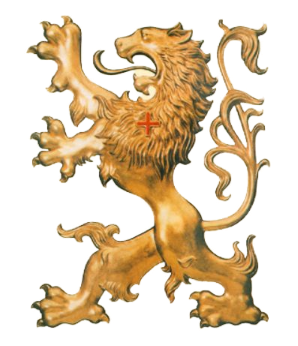|
Plinio Corrêa de Oliveira
Has Communism Changed?
Legionário, No. 669 June 3, 1945 |
|
|
Communist propaganda has insistently publicized the assertion that the regime in force in the Soviet Union is no longer Marx’s or even Lenin’s but mitigated socialism that admits the fundamental rights of the human person, mainly freedom of conscience, family, and property. This claim propagated directly or indirectly in a thousand ways has produced on public some contradictory effects, which nevertheless favor the expansion of Communism. Many who admit that notion as accurate tend toward a socialist regime without the bloodshed and excesses of communist rule and turn to the USSR with curious and friendly eyes. They hope to find in it an ideal ‘middle of the road formula rendered prestigious by a much-trumpeted economic, scientific and military success. They consciously or unconsciously tend to that formula with all their hearts. This special segment of the public is bombarded by photos and reports claiming that the Soviet administration has achieved complete success on all levels—artistic, literary, financial, and administrative. It is easy to see how Bolshevik expansion reaps significant advantages from this great sowing in such predisposed terrain. Tired of wars, tragedies, and hardships, others finally want to glimpse the rosy horizons they were counting on for right after their victory. Desirous above all to take a breath, leaving tomorrow’s problems for tomorrow, they want to enjoy these days of relaxation in peace and are willing to practice the ‘ostrich policy’ in every way. They want to close their eyes to all serious matters and enjoy life without worries. Their sweetest hope is that Russia has abandoned Communism and now practices a peaceful and mitigated socialism. Nazism has died, and so has Communism. The face of the earth is clean of bloody extremism. Men of benign temperament and suave customs can ‘vegetate’ peacefully in the sun of victory certain that ideological disputes will never lead to drastic solutions on the right or left or cause tragic ideological conflicts with bloody and nightmarish outcomes. When Communist propaganda shows them, Stalin, with a smiling countenance and an olive sprig on his lips, poetically tangled in the strands of his mustache, rather than a bloody face and a long deadly dagger in hand, they cling to this image as if to a lifeline. They reject all demonstrations to the contrary with the energy that a person ready to fall into delicious sleep defends against an annoying person trying to get him out of bed, saying there are unsettling noises in the attic or at the front door. The Communists will be able to do as they please while the anesthetized bourgeois enjoys his delicious sleep. A whole sector of ferocious anticommunists thus falls asleep to the captivating sounds of red propaganda, with great advantage for Stalin’s policy. ... For reasons that it is not the case to enumerate, many money-hungry corporate leaders pretend to believe in the Communists’ hypocritical intentions and give free rein to Soviet propaganda, frankly collaborating with the red rulers. For what? They must draw extraordinary advantages or profits from this. Bewildered by their example, many think that today Communism has changed. Thus, the Communists silently but quickly advance their agenda, supported by ultra-bourgeois elements. * * * If Soviet propaganda insists so much that the USSR is living under a different regime, it is evidently because its leaders aim to draw international sympathy they could not have if they still claimed to be officially Communist. So far, the USSR has shown little concern for what the world thinks of its policy. Most surprising events had been taking place in the Russian den: Great slaughters of generals, diplomats, prominent figures in the Communist Party. Stalin carried out a “purge” of co-religionists, which ultimately was a Communist “night of St. Bartholomew’s.” These spectacular slaughters, produced for unconfessed reasons, obviously caused a poor impression. Soviet chieftains could have explained why they did it, dispelling that impression. Were Mr. Stalin’s motives confessable, that would have been an easy task, but he never bothered to do it. Now if their motives were not confessable, how can we trust them today? Does their track record warrant any trust? Their past is one of mysteries and violence, something that positively does not inspire confidence. Let us get back to Russian propaganda. Until some time ago, its mentors were so indifferent to the Western public that they methodically kept the whole world ignorant of everything that was going on there. Yet for some time now, we have seen walls of that fearsome fortress crumble before us, displaying pleasant and flowering gardens to our eyes. Russia has ended the mystery and insists on making the whole world aware of her entire reality. She prints, broadcasts, telegraphs, and calls all countries claiming she has become nice and peaceful. Why so much insistence after so much indifference? Their efforts are telltale of ulterior motives, and raise deeper suspicions. * * * If Stalin has no eyes to see all this, he is a poor statesman. Were I in his place, I would readily find ways to demoralize the stale and stubborn bourgeois who persist in disbelieving my words. I would throw at them a gentleman’s challenge: I would ask the aristocratic House of Lords, robust Wall Street bourgeois, shrewd Roman Cardinals, and ardent totalitarians of Serrano Suner to form a commission and come to Russia. I would allow them to come with all the detectives, photographers, and camera operators they wished. I would host them in superb comfort and impose only one condition on them: That, in addition to all visits made on their initiative, they made sure to visit dungeons to hear prisoners, hospitals to listen to the sick, very modest homes to speak to their residents in private, with an ear glued to the mouths of the poor. To take from them any pretext to refuse my invitation, I would promise to spare the life and freedom of the Polish, which the British and Americans have so loudly asked for in recent days. I thus would obtain, for the sake of reconciliation, what I had failed to achieve through violence. I would place in their hands the olive branches of the new peace. After that, who could doubt that I had indeed made Lenin’s Russia (still smelling of blood and gunpowder), the idyllic, delicate and bland panorama that Watteau would surely paint if he were still alive? It does not take much cunning to invent this way of crushing bourgeois counterpropaganda. It has been known since the time of cave dwellers that a man accused of doing dishonest things in his cave, house or palace, makes a point of opening his home and perhaps his files to detractors to challenge them to demonstrate their accusations. Is Stalin so obtuse that he overlooks that? Communist propaganda tells us that he is a genius. So, I find myself before this dilemma: a) Stalin is evidently intent on demonstrating that today’s Communism is as gentle and peaceful as a dove. b) The only means capable of demonstrating this point is available to anyone but he does not use it. c) That said, either he does not have a statesman’s vision, and communist propaganda lies when claiming that he is a genius. d) Or, despite his words, there are in Russia realities that gravely contradict his statements, and they are so blatant and severe that he could not try to hide them from visitors. In this case, communist propaganda lies when it claims that Communism has changed. In both cases, they are lying. I see no way out of this dilemma. The following article will show this suspicion grows as we read Moscow’s propaganda documents. |
|

